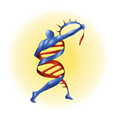NIPD (Non Invasive Prenatal Diagnosis)
As invasive test procedures such as amniocentesis (AC) and chorionic villus sampling (CVS) have a miscarriage risk of 1%, these procedures are being replaced by Non Invasive Prenatal Testing (NIPT) on fetal DNA from maternal blood to exclude fetal aneuploidies.
Until recently NIPT was only possible for the detection of Down syndrome and some other common chromosomal anomalies (trisomy 18, trisomy 13) in the fetus.
GENDIA now offers Non-Invasive Prenatal Diagnosis (NIPD) for a limited number of monogenic disorders.
The essentials of the NIPD test are summarized below, and more details can be found in the different brochures by clicking on the respective links listed below.

